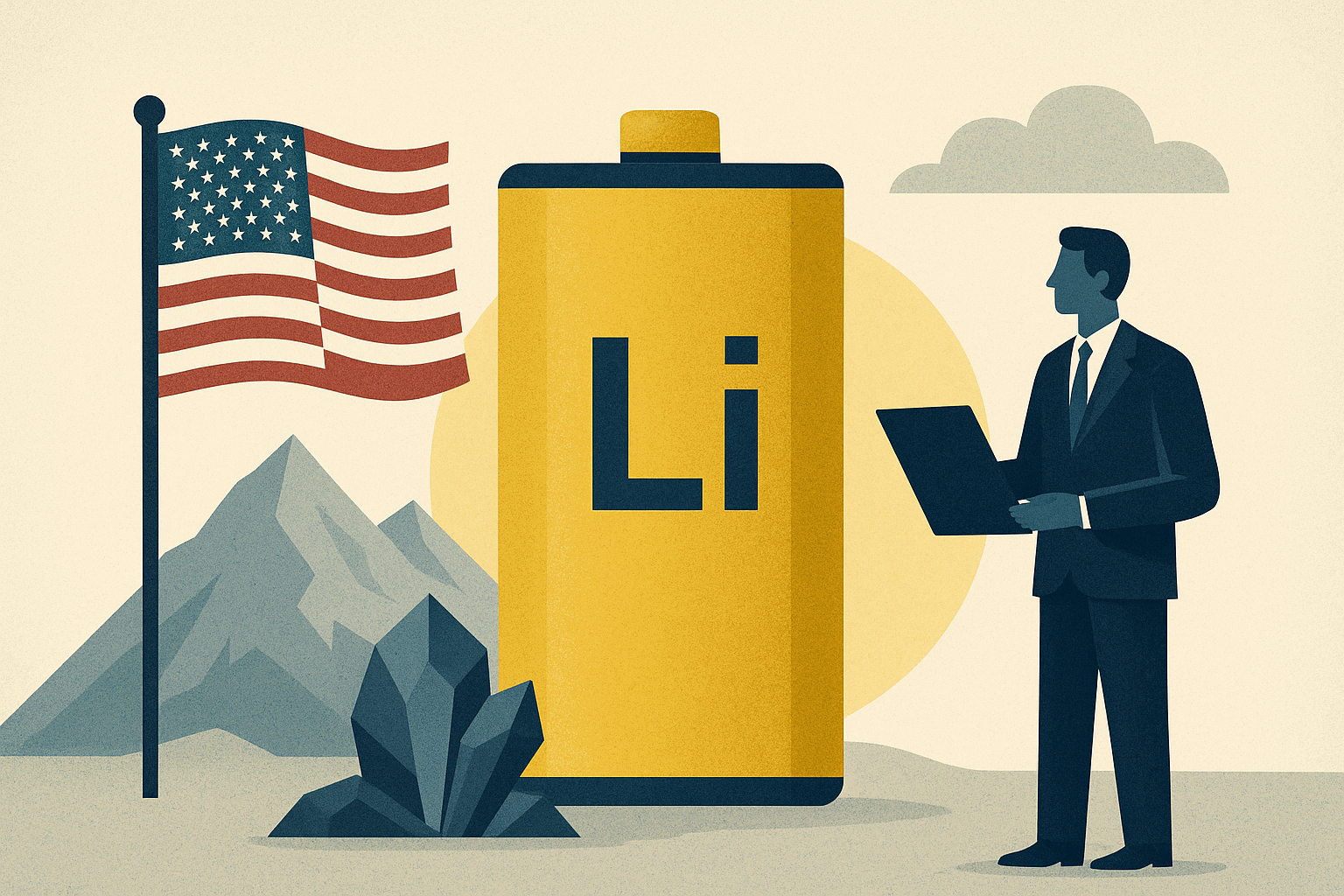The global race for critical minerals is entering a new phase — and Washington is making its next big move. The U.S. government has agreed to acquire a stake in Lithium Americas Corp. (NYSE: LAC, TSX: LAC), the Canadian-based company developing the Thacker Pass lithium mine in Nevada. This development, first reported by Bloomberg and confirmed by additional outlets including ShareCafe, signals a decisive step toward securing domestic supply of lithium — the metal that sits at the heart of the electric vehicle (EV) and battery storage revolution.
Why This Matters Now
Lithium has become one of the most geopolitically sensitive commodities of the decade. Demand for the metal is projected to grow more than fivefold by 2035, according to the International Energy Agency, as EV adoption accelerates and grid-scale storage expands. The U.S. currently sources the vast majority of its lithium from abroad, primarily South America and Australia, with China dominating processing capacity.
Against this backdrop, the Thacker Pass project in Nevada represents the largest known lithium reserve in North America. By taking a direct stake, the U.S. government is not only helping to de-risk the project financially but also signaling its willingness to play a more interventionist role in critical supply chains.
Government as Shareholder: The Strategic Shift
Historically, the U.S. government has relied on private markets to allocate capital. This move marks a departure — directly embedding sovereign capital into the future of critical mineral extraction. Analysts see it as part of a broader industrial policy shift, consistent with the Inflation Reduction Act’s incentives for EVs and clean energy supply chains.
For Lithium Americas, the backing provides political cover, potentially accelerates permitting and financing, and may ease off-take agreements with automakers eager to lock in domestic supplies. However, government ownership also introduces new complexities:
- Dilution Risk: Existing shareholders may see their positions diluted depending on the structure of the government’s stake.
- Control Rights: Questions remain around how much influence Washington will wield over corporate strategy.
- Execution: Building Thacker Pass remains a multi-year endeavor with significant environmental, regulatory, and construction hurdles.
Future Trends to Watch
1. Catalyst for More Deals
If the U.S. takes a direct stake in Lithium Americas, it may not be the last. Other North American developers — such as Piedmont Lithium (NASDAQ: PLL), Standard Lithium (TSX.V: SLI), and smaller juniors in Canada’s Ring of Fire — could benefit from similar sovereign support.
2. Investor Re-Rating of Lithium Equities
Markets tend to reward sovereign-backed projects with a lower cost of capital and higher perceived stability. Lithium equities may experience upward re-ratings, though much depends on global price volatility.
3. Geopolitical Balancing Act
China currently processes more than 70% of global lithium. Washington’s move is part of a broader decoupling effort — one that investors should watch closely for ripple effects on trade relations and supply chain flows.
Key Investment Insight
For investors, the message is clear: critical minerals are no longer just a commodities play — they’re a national security asset class. Lithium producers with strong projects in North America could see significant upside as governments step in to underwrite domestic supply chains. At the same time, investors should remain disciplined — dilution risks, regulatory delays, and commodity price swings can erode returns.
Position sizing, diversification, and careful scrutiny of capital structures will be essential. Investors may also want to monitor downstream opportunities in EV battery manufacturing and recycling, which are likely to benefit from the same policy tailwinds.
The U.S. stake in Lithium Americas is more than just a financing deal — it’s a signal that sovereign capital is ready to shape the future of strategic industries. For investors, this represents both opportunity and risk, but above all a new playbook for how governments are willing to intervene in markets once considered purely private.
Stay with MoneyNews.Today for daily coverage of how these shifts are reshaping the investment landscape.





